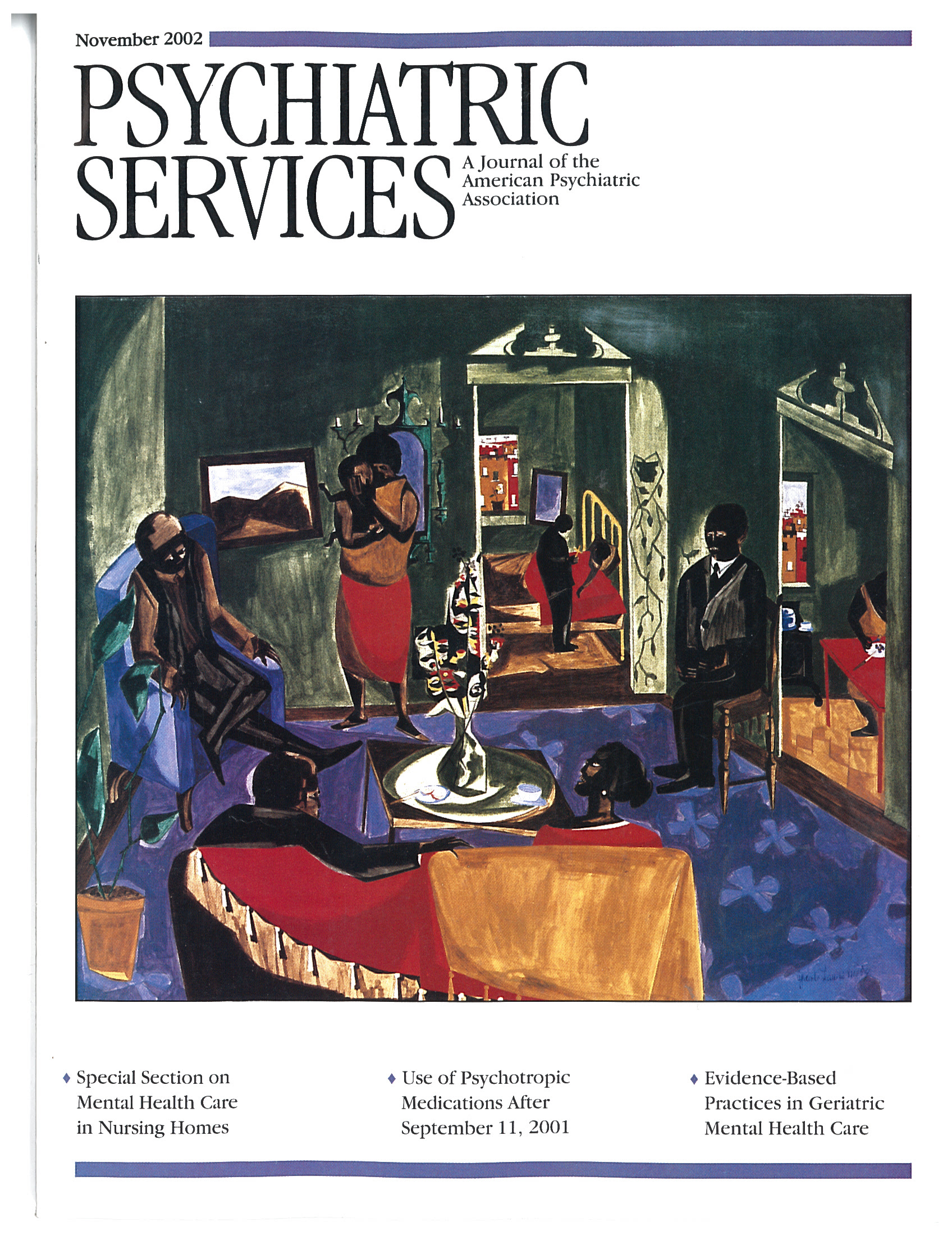To the Editor: For the past 13 years we have been field testing a specialized group treatment for people with schizophrenia in a state psychiatric hospital and in a community mental health center. We named the treatment multimodal integrative cognitive stimulating therapy (MICST). The initial success of the model was first described in the literature by Ahmed and Goldman in 1994 (
1).
MICST is provided weekly in group sessions that last 45 to 60 minutes. Six to ten members usually attend. The therapy includes three components: relaxation exercises, group discussion, and paper-and-pencil exercises. MICST is designed to stimulate participants' intact cognitive functioning, improve their information-processing skills and awareness of conversation rules, and enhance their abilities to engage in reality-based conversations. Both auditory and visual modalities are used, taking into account clients' psychiatric symptoms as well as their deficits in information processing and working memory (
2). The group activities also help stimulate communication skills that may not be apparent in ordinary clinician-client interactions.
The relaxation phase involves a deep-breathing exercise performed sitting and then standing and sometimes coupled with visual imagery. The exercise lasts for two to three minutes and is done at the beginning and end of the group session. Clients are encouraged to take turns leading the exercise and perform the breathing repetitions ten times, counting aloud while completing each repetition. The exercise is designed to promote relaxation, set the tone for group participation, and teach simple goal attainment behaviors.
The discussion phase follows the relaxation exercise and has four components: discussion of the events of the past week, discussion of other remembered personal information, and discussion of general knowledge and mental health topics. It is designed to access clients' factual memories by providing reinforcement of logical and spontaneous verbalizations that are congruent with conversation themes. The therapist may expand on an issue or identify new topics by focusing on something a client says, which, although seemingly tangential, may lead to a factual discussion of general knowledge or a mental health topic.
The group concludes with paper-and-pencil exercises that may involve word associations, reading comprehension, logical reasoning, or general knowledge questions. Self-assessment questionnaires related to treatment goals or clients' perception of their recovery are sometimes used. The exercises are designed to facilitate memory, comprehension, and reasoning skills as well as to promote attention to tasks and concentration. The clinician provides feedback on the exercises to help reduce "cognitive rigidity" and other difficulties clients may demonstrate in accepting corrective feedback about their thinking. The rationale for using the paper-and-pencil approach is that people with schizophrenia seem to be more focused and attentive when information is presented both verbally and visually rather than just verbally (
3).
Although various other forms of psychosocial group approaches have been successful in treating schizophrenia (
4), we believe that MICST provides a specialized group treatment comprising a variety of short activities that take into account clients' difficulties in sustaining task attention and changing mental sets with new task demands (
5). Furthermore, multiple communication strategies are used to compensate for clients' difficulties communicating in the usual auditory mode, and the rapid shifting of activities helps prevent clients from becoming preoccupied with obsessions and ruminations. Although we have not conducted a formal empirical study, we have occasionally used structured feedback questionnaires and have obtained positive client and staff feedback about the effectiveness of MICST.
As neuropsychological bases for information processing deficits in schizophrenia become more firmly established, we may identify more optimal modes of communicating with clients and redirecting them more effectively from preoccupations with psychiatric symptoms. Research will also assist us in designing psychosocial interventions that will compensate for clients' deficits in attention and working memory, facilitate their communication skills, and ultimately enhance treatment and functional outcomes. We encourage further research and clinical work to examine how some of the communication strategies of MICST may serve as a useful adjunct to traditional medication and milieu treatment.

